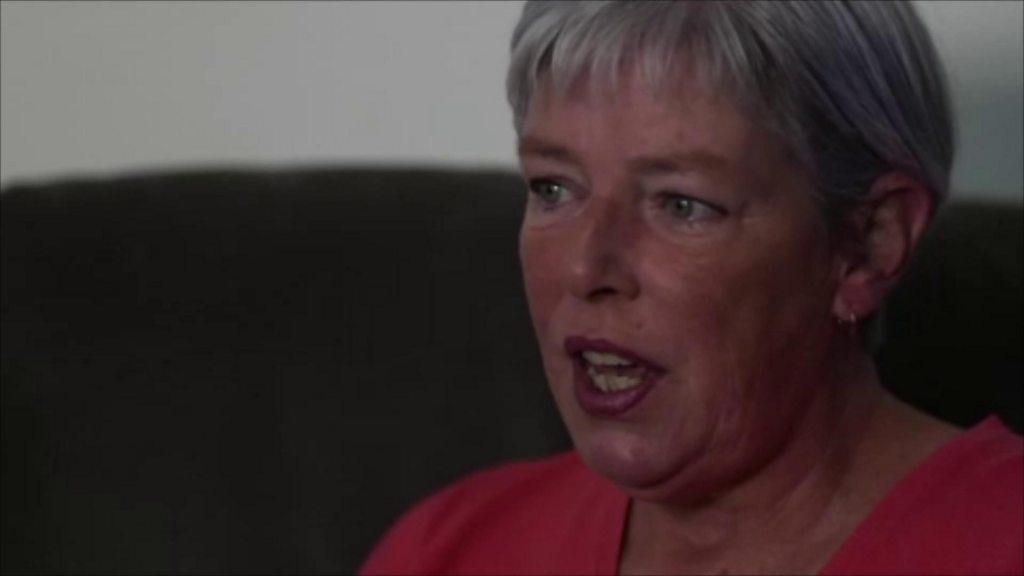Troubles legacy bill: NI secretary says he is open to changes
- Published
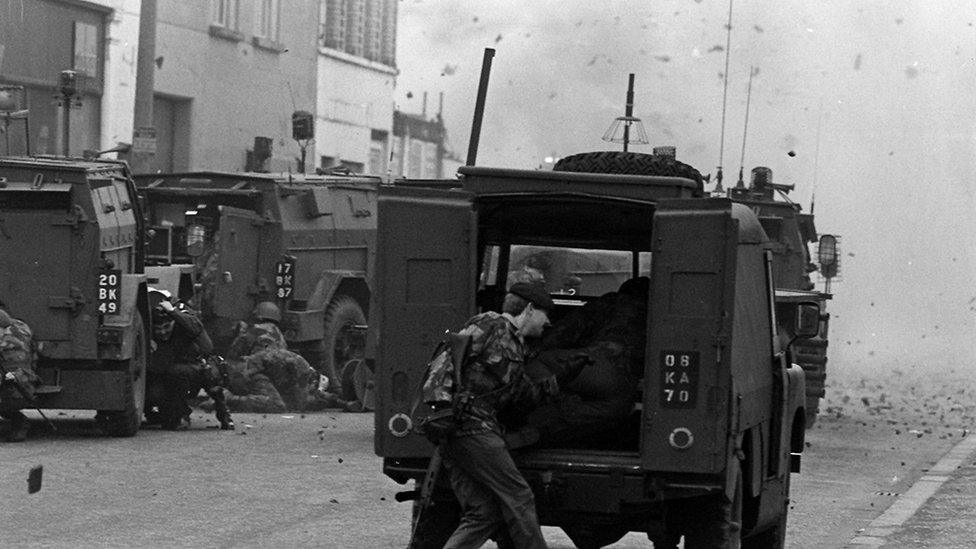
Relatives have called for a supreme court advisory judgement on the lawfulness of the proposals
The Northern Ireland secretary has said the government is still open to making changes to its controversial legacy bill going through Parliament.
Shailesh Vara was speaking on a visit to Londonderry on Thursday.
His comments follow a meeting between government ministers and victims' groups on Wednesday night to discuss the legislation.
The bill offers a conditional amnesty to those accused of killings and other Troubles-related crimes.
Victims' groups and political parties at Stormont are opposed to the bill, arguing it will remove access to justice for victims and their families.
But Mr Vara said the government's intention was to provide "a way forward for some people".
"The bill going through Parliament is still open to negotiations, we are in listening mode, there is still room for making amendments."
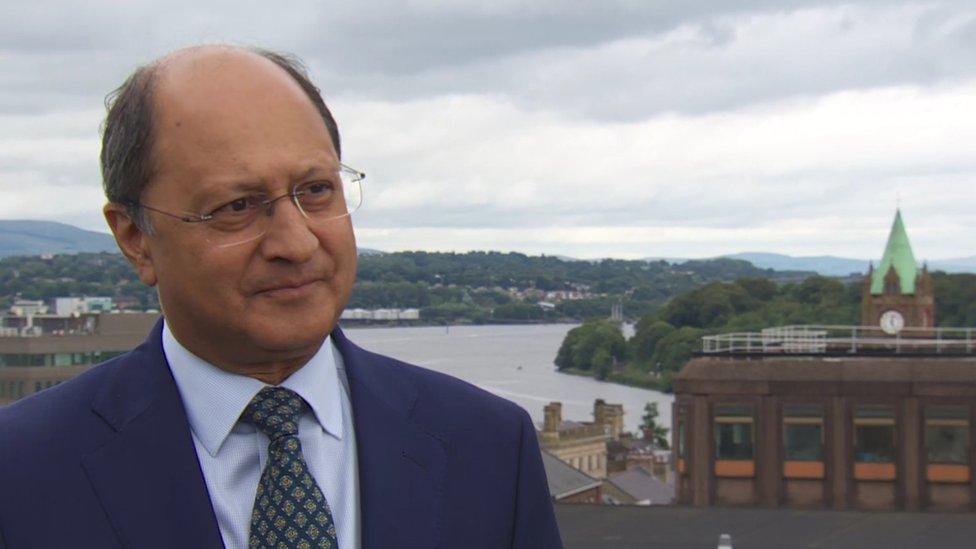
Mr Vara said he recognised that legacy issues remain difficult for many people
The secretary of state added that there was "no one solution" that would find favour with every community in Northern Ireland, but that he would continue discussions on the bill.
Northern Ireland Minister Lord Caine was involved in Wednesday's talks with victims' groups and the Victims Commissioner for Northern Ireland, Ian Jeffers.
He said afterwards that he recognised that legacy would remain difficult for many people to deal with.
Speaking about the legislation, Mr Jeffers told BBC News NI: "We're in this stark reality that the bill is going to go through.
"I now as commissioner have to decide are there ways we could at least amend this bill to make it slightly more palatable."
Protesters gathered in the Diamond area of Derry during Mr Vara's visit to the nearby Holywell Trust to demonstrate their opposition to the government's plans.
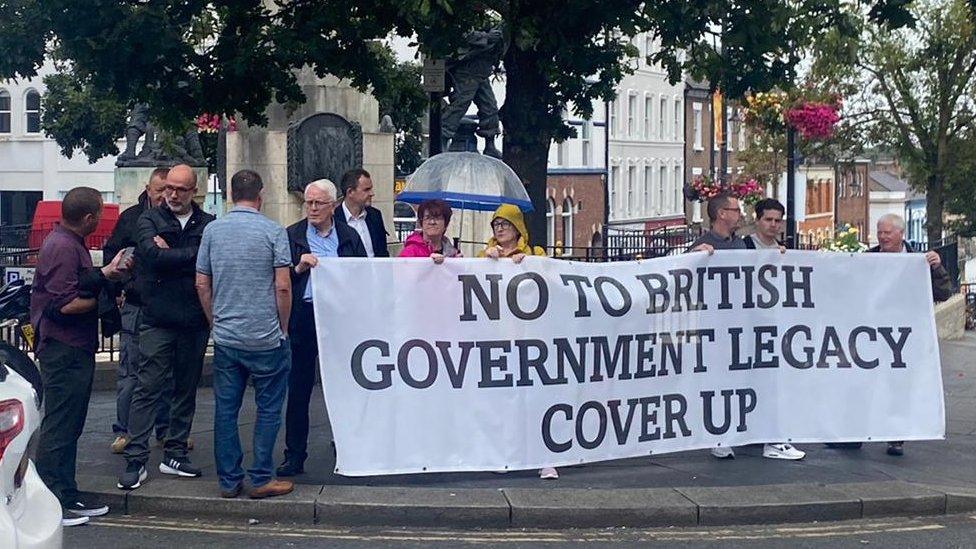
Protesters in Derry during Shailesh Vara's visit
Billy McGreanery, whose uncle with the same name was shot dead by the Army in Derry on 15 September 1971, said his family will never stop seeking justice.
"It's nearly 51 years since my uncle was killed and the ramifications of that for my family are still strong today and I will not stop fighting for justice.
"It's plain to see that wrong has been done in this town and across the north and it has to be addressed, it is as simple as that."
Mr McGreanery expressed his disappointment that Mr Vara did not meet the "handful of bereaved families" who gathered outside during his visit to the city.
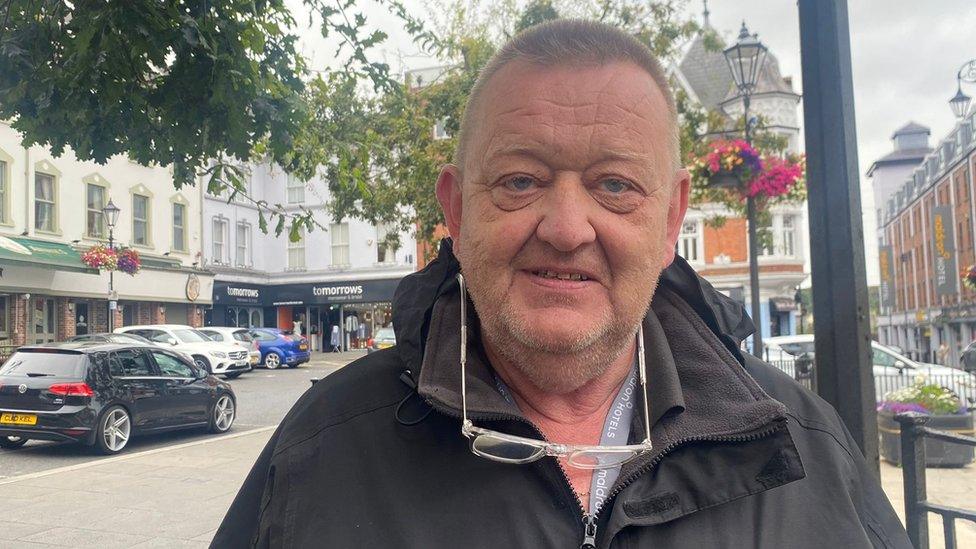
Billy McGreanery said his family will never stop seeking justice
In May, the government introduced legislation that aims to draw a line under the Northern Ireland Troubles by dealing with so-called legacy issues.
It is an attempt to deal with more than 1,000 unsolved killings.
Under the bill, immunity from prosecution will be offered to those who co-operate with Troubles' investigations run by a new information recovery body.
The roots of Northern Ireland’s Troubles lie deep in Irish history
The Independent Commission for Reconciliation and Information Recovery (ICRIR) will be headed by a judicial figure appointed by the government.
It will accept applications for immunity for five years.
After that time, reviews will not be able to be requested but the ICRIR will continue to work through uncompleted cases.
A panel within the ICRIR will be responsible for deciding if a perpetrator qualifies for immunity.
Once granted, it cannot be revoked.
It will still take months before the legislation makes it into law and takes effect.
Related topics
- Published4 July 2022

- Published29 June 2022
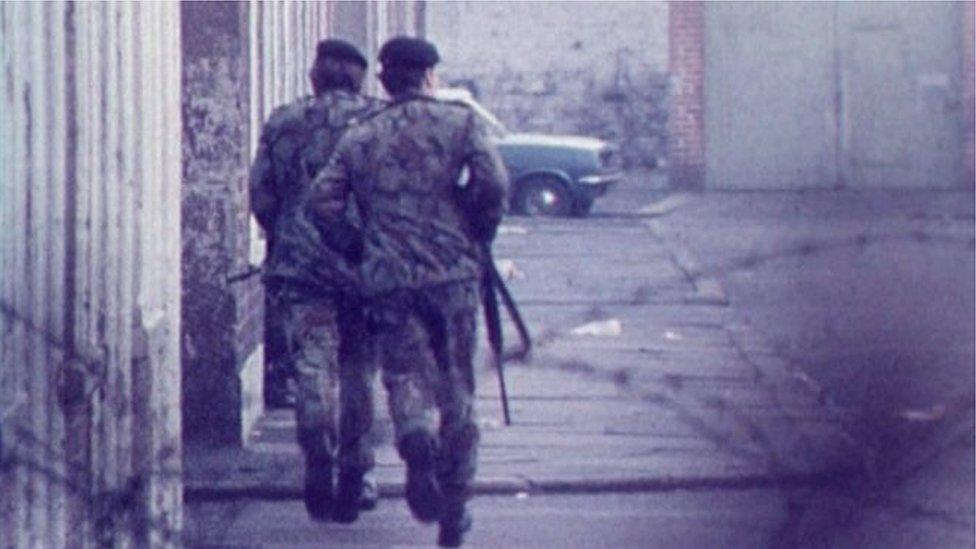
- Published24 May 2022
